Swiss support of $11.1 million improves access to water and sanitation in Niassa, Mozambique
MISA Mozambique warns of “attempts to silence press”
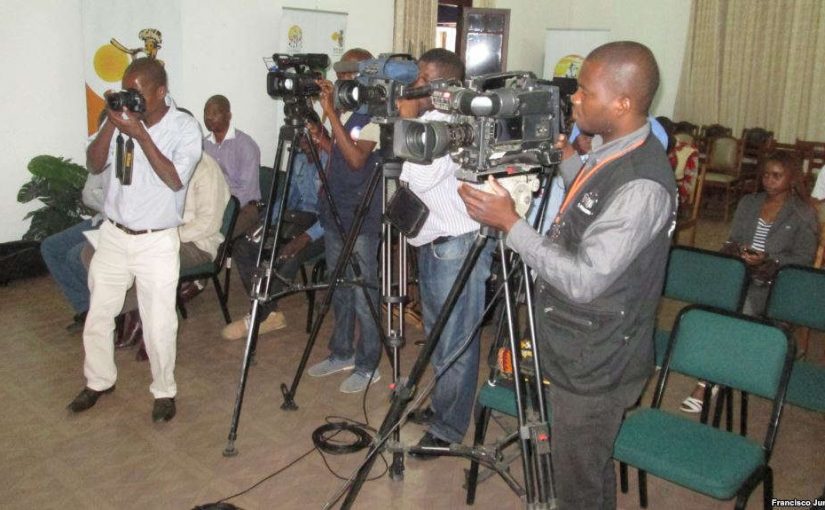
Voa (File photo)
The Mozambican chapter of the regional press freedom association MISA (Media Institute of Southern Africa) was warned of “attempts to silence the press and civil society organisations” over the past two months.
In two of the five cases mentioned by MISA-Mozambique in a statement received by AIM, local authorities allegedly harassed and intimidated community radio and television stations.
Thus, on 12 July, the Permanent Secretary of the Chinde district government, in the central province of Zambezia, Eugenio Gocinho, illegally banned the Chinde Community Radio from broadcasting a news bulletin, supposedly because it contained information on the political activity of the main opposition party, the rebel movement Renamo.
A journalist from the radio, which is owned by the government’s Mass Communications Institute (ICS), covered a Renamo meeting, but was then called in by Gocinho’s office and ordered not to broadcast anything about the event.
According to the interim coordinator of the radio, Gocinho and the local director of the State Intelligence and Security Service (SISE) requested to hear the recording of the meeting and to read the text written by the journalist. The upshot was that the journalist was ordered not to broadcast his report.
However, Gocinho himself has categorically denied this claim. Interviewed by Radio Mozambique he said that he had never interfered in the operations of the community radio.
In June, MISA reported, the governor of Manica province, Alberto Mondlane, expelled journalists from the Chimoio Community Television, also owned by the ICS, from a meeting of the Manica Provincial Coordinating Council, which was presenting a balance sheet on the provincial government’s performance over the past two years.
The governor ordered the removal of the journalists after the provincial attorney’s office had delivered a report which spoke of the failure of public servants to submit the obligatory annual declarations of their income and assets.
The report showed that of the 12 district administrators in Manica, only two had submitted their declarations, and of the 14 provincial directors, less than five had complied with this requirement. As the Provincial Attorney was stressing that all those officials covered by the law must submit their declarations of assets and income, Mondlane intervened to ask why journalists were present.
The provincial permanent secretary said the reporters had been invited, and he saw no problem with them covering the meeting, particularly since previous meetings of the Coordinating Council have been public.
Nonetheless, the governor ordered the reporters to leave. According to the MISA statement, he declared “Take that camera away from me. I’m giving recommendations here, they’re going to report this and we shall all be stained”.
In the neighbouring province of Tete, the police, on 20 July, interrogated Aparicio do Nascimento, editor of a local paper “Malacha”, following publication of an article which claimed that a policeman had shot dead an innocent youth, named Husseni Laitone. Nascimento told the police commander that the source for the article had been local members of the public.
Also Read: Conflicts between mining company and communities in Tete cause young man’s death
The police did not deny the report, and told Nascimento that “investigations are under way to ascertain who fired the fatal shots”, and “Malacha” would be informed of the results. Nascimento was confronted with a policeman named only as “Dino”, whom the community claimed was the shooter.
Although the police claimed that Nascimento had only been called in “for a talk”, MISA protested that the summons to the editor, and confronting him with the alleged killer, constituted “a veiled attempt at intimidation”.
MISA also reported that an armed man, believed to be a member of the police, entered a meeting organised by the Youth Parliament (PJ) in Maputo on 14 July, grabbed the microphone, and made what was interpreted as a threatening speech. When the organisers took the microphone away from him, he was found to be carrying a gun.
Also Read: Freedom of the press on the decline in Mozambique
A second civil society organisation, the Budget Monitoring Forum (FMO) suffered a cyber-attack in mid-July. Unidentified hackers entered its website and left the message, in English, “this site haked (sic) by Pri Nce. The hackers also inserted an image of a person covered in blood with the caption “Owned by Pri Nce”. It is not at all clear who or what “Pri Nce” is.
A member of the FMO (not named by MISA) also suffered an attempted burglary at his home, during which a security guard was stabbed.
These events happened shortly after the FMO submitted a request to the Constitutional Council, the country’s highest body in matters of constitutional law, requesting that the Council declare as unconstitutional the resolution by the Mozambican parliament, the Assembly of the Republic, approving the 2014 General State Account, because it includes the illegal government guarantee for the 850 million dollar loan from European banks to the Mozambique Tuna Company (Ematum).



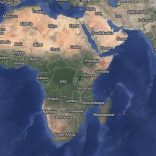



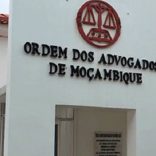

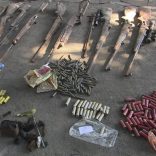

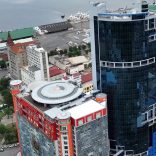
Leave a Reply
Be the First to Comment!
You must be logged in to post a comment.
You must be logged in to post a comment.